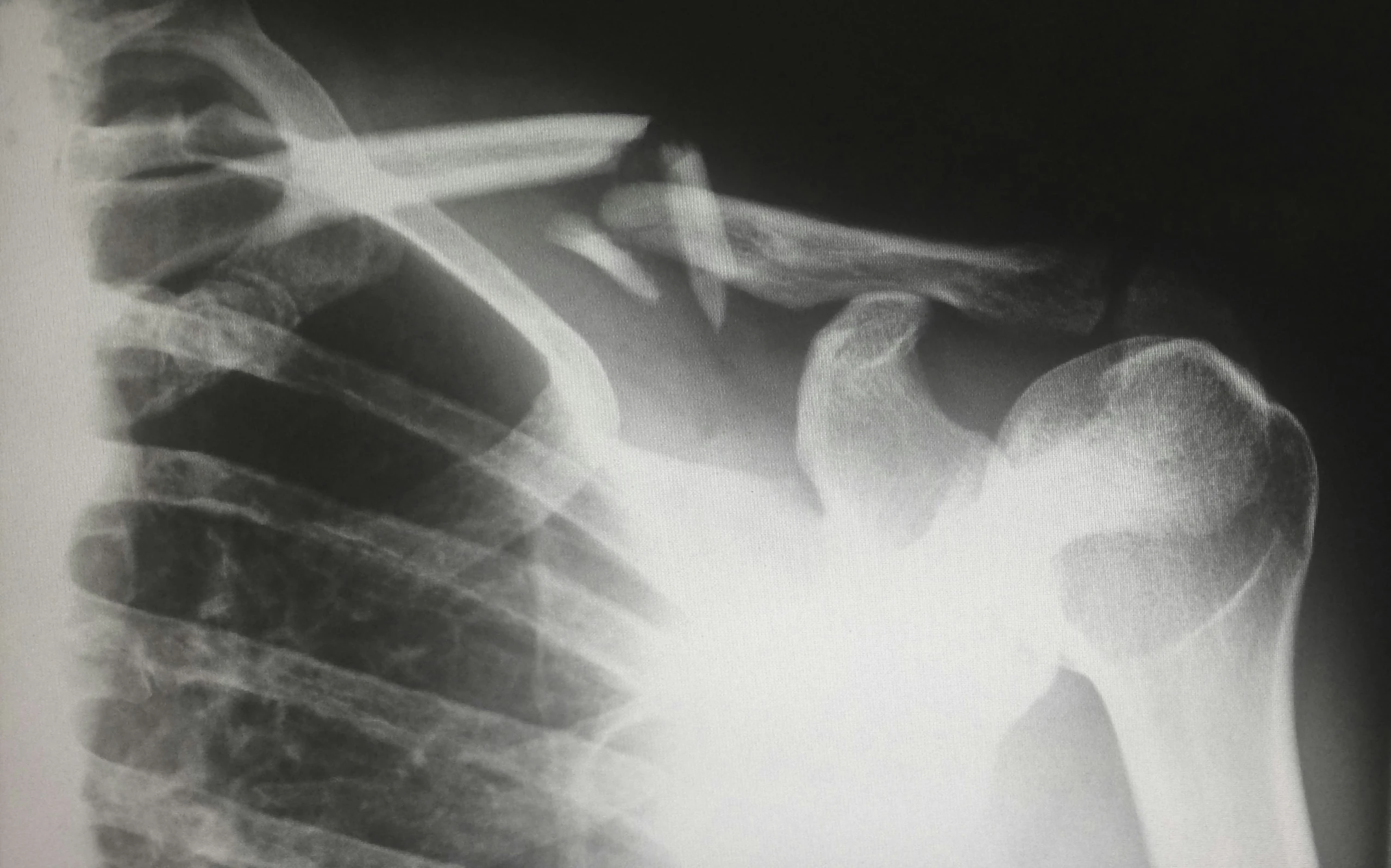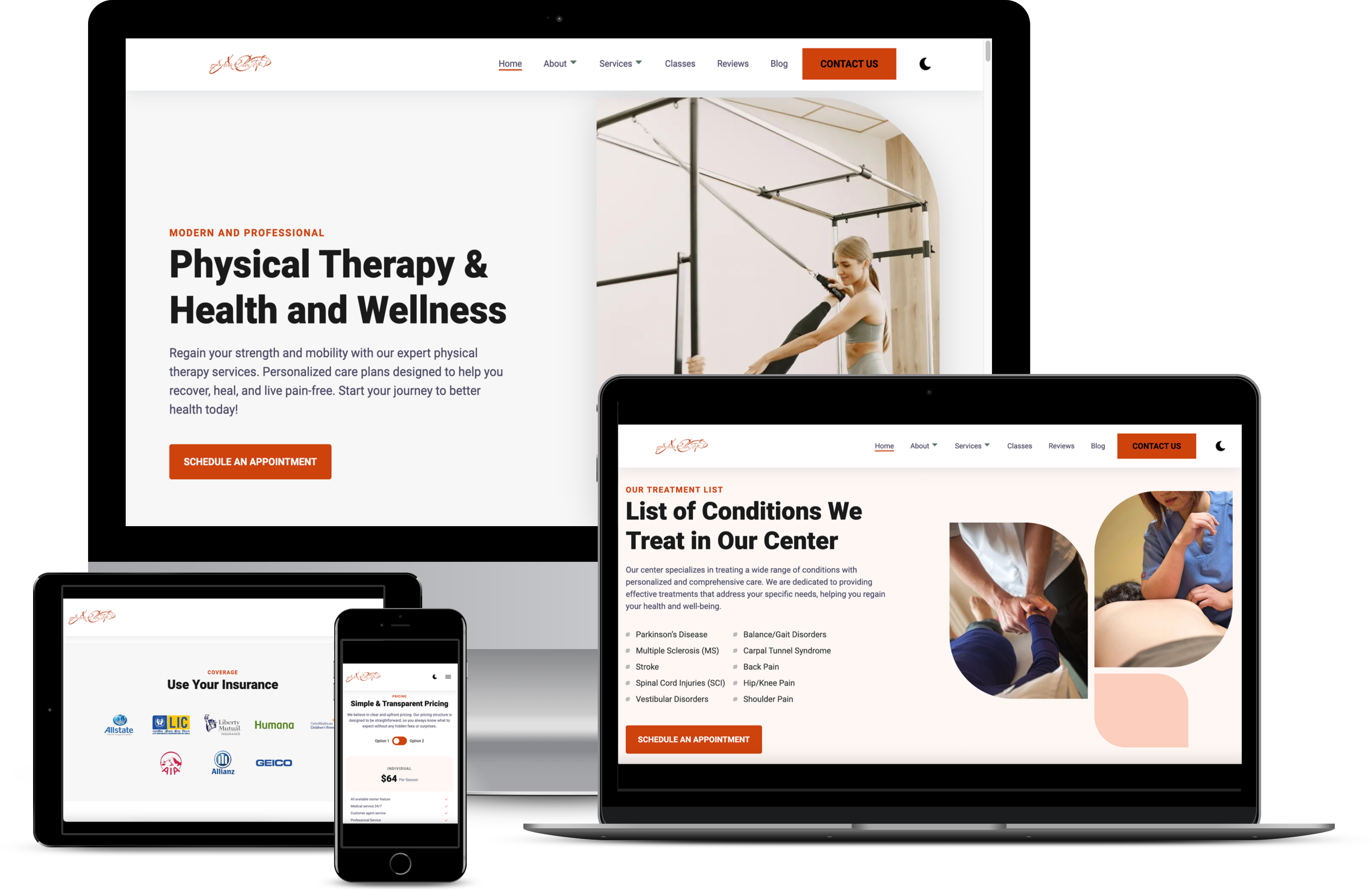Medical Web Design Services
Affordable web design services for medical organizations. 100% Hand coded websites starting at $150/mo.
Get StartedWeb Design
Multi page website to showcase your services
Free Hosting
free deployment and hosting for your website
SEO Services
fully optimized on page SEO content, addons available
General Maintainence
Routine and consistent maintainence for your website
100% Responsive Design
Our medical services web design features a 100% responsive layout, ensuring your site provides a professional, accessible experience on any device. From smartphones to desktops, patients will find it easy to navigate and access information about your medical services and practice.
Fast Loading Time
Our medical services web design prioritizes fast loading times to enhance user experience. A quick, efficient site allows patients to swiftly access crucial information about your services and book appointments, ensuring they have a smooth and positive interaction with your practice.
Flexible Pricing Plans for Your Tailored Website
Unlock clarity and confidence with our transparent pricing! No hidden fees, just straightforward costs for exceptional web development
- Standard $150 /MonthBest Deal
- 5 Page Website
- $100 one time charge per extra page over 5
- Free Hosting
- Unlimited Edits
- 24/7 Support
- Standard + Blog $300 /MonthHot Deal
- 6 Page Website
- $100 one time charge per extra page over 6
- Unlimited Blog Posts
- Add / Edit Posts
- Blog Transfers
- Standard $3500
- 5 Page Website
- Email Notifications
- Extra Pages - $100/each
- Hosting - $25/month
- Edits - $50/hour
- Standard + Blog $4500
- 6 Page Website
- Email Notifications
- Blog Post - $40/post
- Hosting - $25/month
- Edits - $30/hour
Frequently Asked Questions
A website can offer detailed information about various diagnostic tests and procedures, including their purpose, preparation, and what to expect. It can also provide a directory of diagnostic centers and allow users to book appointments online or access results securely through patient portals.
Websites can offer comprehensive treatment guides, including information on medications, therapies, and procedures. They can also feature appointment scheduling, telemedicine services for remote consultations, and reminders for follow-up care or medication refills.
A website can highlight preventive care through educational content about healthy lifestyle choices, information on vaccinations and screenings, and tools for self-assessment. It can also offer features to schedule preventive exams and access personalized health recommendations based on user input.
Websites can provide critical information on how to handle medical emergencies, including contact details for emergency services, directions to the nearest emergency rooms, and guidance on what to do in various urgent situations. Integration with emergency response systems can also help streamline care.
Websites can support chronic disease management by offering tools for tracking symptoms, medications, and progress. They can provide educational resources about managing specific conditions, facilitate regular check-ins with healthcare providers, and offer community forums for support and advice.
Websites can enhance patient engagement through interactive features such as online appointment booking, access to personal health records, and educational content tailored to the user's health needs. Engaging content and easy navigation can also improve user satisfaction and involvement in their own care.
Websites can improve communication by offering secure messaging systems, video consultations, and real-time updates on treatment plans. They can also provide patient feedback forms and surveys to gather insights and improve care quality.
A website can play a crucial role in health education by providing up-to-date information on various health topics, preventive measures, and treatment options. It can host blogs, articles, and video content created by healthcare professionals to educate and inform users.
Websites can assist in managing health records by offering secure portals where users can view and update their medical history, test results, and treatment plans. Integration with electronic health records (EHR) systems allows for seamless updates and easy access to important information.
Websites can improve access to medical resources by providing directories of healthcare providers, information on various medical services, and links to support organizations. They can also feature a search function to help users find specific resources or information quickly and easily.










